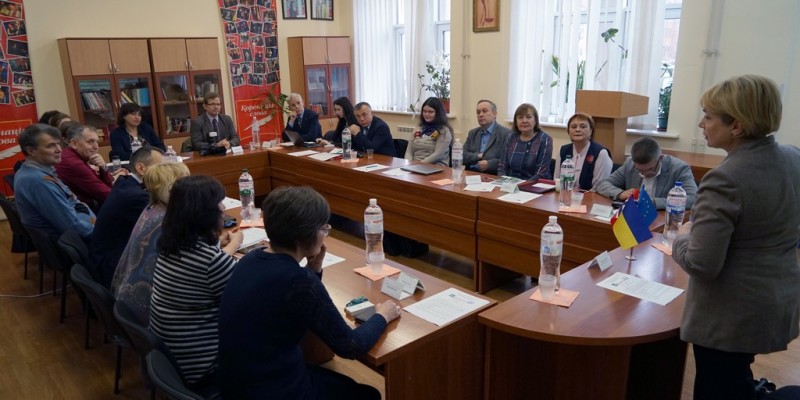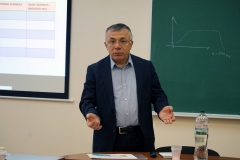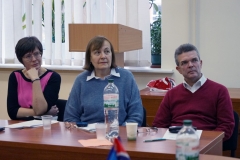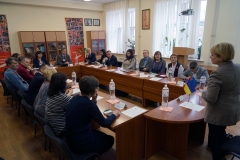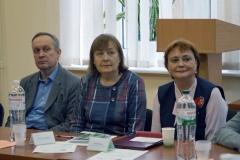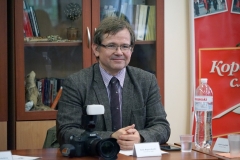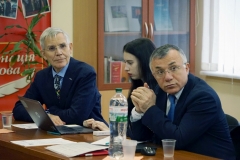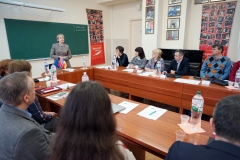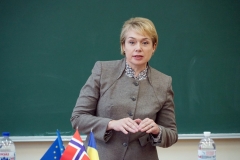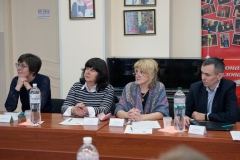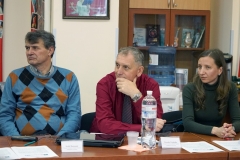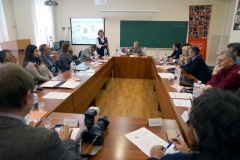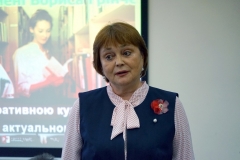On November 13-15, 2019, a working meeting of the participants of the international project “DeDiMaMo – Development of students’ mathematical competencies through Digital Mathematical Modeling”, Eurasia program, No. CPEA-ST-2019/10067, with the financial support of the Government of Norway, was held at the Borys Grinchenko Kyiv University.
The meeting was attended by representatives of Agder University (Norway): Yuriy Rogovchenko, Cengiz Alacaci, Simon Goodchild, professors of Mathematical Sciences Department. Borys Grinchenko Kyiv University was represented by: Natalia Morze – Project Coordinator, Professor of Computer Science and Mathematics Department, Oleksiy Zhyltsov – Vice-Rector for Scientific-Methodical and Educational Work, Oksana Lytvyn- Head of Computer Science and Mathematics Department, Maria Astafieva, Oksana Hlushak, Irina Mashkina – Associate Professors of Computer Science and Mathematics Department, Maria Boyko – Senior Lecturer of Computer Science and Mathematics Department, Irina Vorotnikova – Associate Professor of Natural Sciences and Mathematics Education and Technologies Department, Yuri Mazhuha – Associate Professor of Primary Education Department. From the third partner of the project – Ternopil Volodymyr Hnatyuk National Pedagogical University – Nadiya Balyk, Head of the Department of Informatics and Methods of Training, Inna Grod, Serhiy Martynyuk, Vasyl Oleksiuk – associate professors of Informatics and Methods of Teaching Department, Yaroslav Vasylenko – Senior Lecturer of Informatics and Teaching Methods Department.
Liliya Grinevich, Vice-Rector for Scientific and Pedagogical and International Activities of the Borys Grinchenko Kyiv University addressed the participants with a welcoming speech.
During the meeting, participants discussed the benefits and risks of using mathematical models and digital tools in mathematics education: video, computer-aided evaluation, augmented reality, 3D printing and scanning, SimReal, Gran, GeoGebra, Go-Labz, CAS (MATLAB, Mathematica, Maple); implementation of adaptive learning, learning styles, VARC technology, chatbots, smart technologies. They also agreed on the development of a course in digital mathematical modeling, student participation in the project, holding an idea fair and more.


